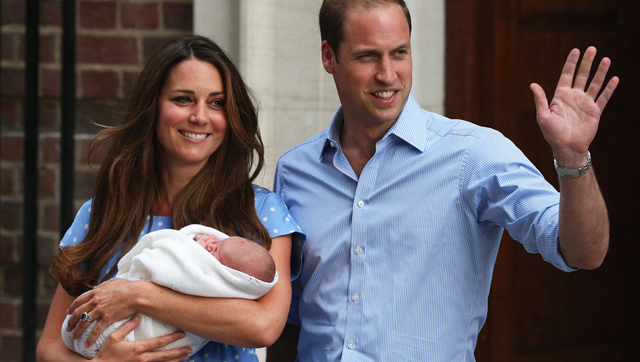
There's something about the concept of hereditary privilege that just makes me feel... extremely American. The same goes for the divine right of kings, primogeniture and the House of Lords. When I say these things make me feel American, I mean that I disapprove of them. The specific hereditary privileges I'm speaking of have to do with ruling nations, siring of heirs and beheading two of your six wives even though you just invented divorce a few years earlier. As Americans, we try really hard not to do that.
As you may have guessed, this has something to do with HRH Royal Baby Boy Windsor As Yet Unnamed (HRH RBBWAYU). Let's just get this out of the way before going any further: I'm sure he's lovely.
Actually, it's less about HRH RBBWAYU (I promise that's the last time I'll use that) than it is the international media's attention to his birth. In that demographic, I also include said media's audiences, specifically here in the United States and other monarchy-free nations. Breathless, suspenseful, respectfully informative of monarchical traditions and laws, it was the best television pageantry since parents Prince William and the Duchess of Cambridge were wed two years ago. Or wait, maybe I meant the Queen's Royal Jubilee? Or maybe an especially good year at Ascot? Or, what was the wedding before that, or was it a state funeral? My point is, royalty (in this case, the English) are very good at pageantry and spectacle to the point where the celebrations almost run together in the collective unconscious. Royals are good at pageants and the media is very good at adding their own level of spectacle. And did I mention, the public is really good at consuming it? It's especially true in the U.S. where our viewing numbers (23 million) for the 2011 marriage of William and Kate exceeded the viewership of the 1981 wedding of William's parents Prince Charles and then Lady Diana Spencer. The U.K., by comparison, lost viewership (28.4 million in 1981, 27 million in 2011). The coverage of Royal Baby has an even more awed tone than events past: this is the birth of an heir we're talking about. The Future King of England has been born.
It's the 21st Century and we're really excited about the birth of a king.
As an American, I'm happy we're not bound to a feudal tradition in our governance (even though in England a monarch's role is mostly ceremonial) and that there's no one in our public life who, because of their birth, we're required to call by special names and pronouns and not meet at eye level or speak when spoken to or whatever kind of hierarchical protocol. It sort of makes my skin crawl. That said...

